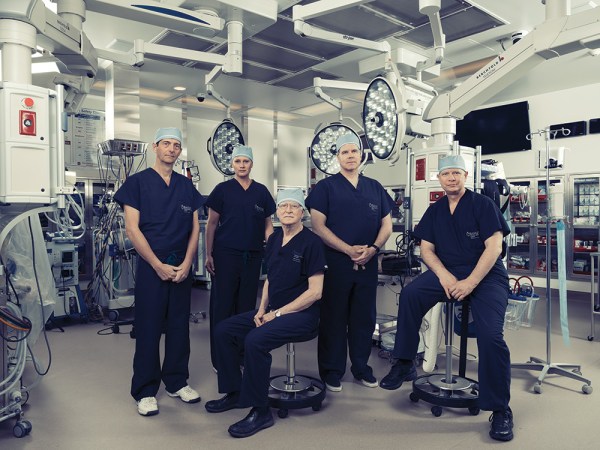

Update January 12, 2023 at 10:37 a.m.: The strike has ended after three days. A tenative deal has been struck between the hospitals and New York State Nurses Association (NYSNA).
As of this morning, thousands of nurses at two major hospitals in New York City are officially on strike. While tentative deals had been reached for nurses at several other hospitals in the area, talks with three of Montefiore Medical Center’s locations in the Bronx and Mount Sinai’s flagship hospital on Manhattans’s Upper East Side broke down overnight.
In a statement released today, the New York State Nurses Association (NYSNA) said, “After bargaining late into the night at Montefiore and Mount Sinai Hospital yesterday, no tentative agreements were reached. Today, more than 7,000 nurses at two hospitals are on strike for fair contracts that improve patient care.”
[Related: Meet the nurse who’s running a Texas COVID-19 clinic all on her own.]
Hundreds of nurses and supporters filled streets near the hospitals Monday morning, seeking a end to chronic understaffing that they say leaves nurses caring for too many patients. These claims of long hours in unsafe conditions have been echoed by other nurses throughout the United States and in the United Kingdom.
“Our bosses created the understaffing crisis by failing to hire and retain enough nurses … leaving the rest of us to work short staffed,” said NYSNA president Nancy Hagans, in a virtual press conference. “The hospital is often so overcrowded that patients are admitted in beds in the hallway instead of hospital rooms.”
According to Hagans, Montefiore currently has 760 nursing job vacancies and that the emergency department is responsible for 20 patients, instead of the standard three.
Mount Sinai spokesperson Lucia Lee told CNN “NYSNA leadership walked out of negotiations shortly after 1 a.m. ET, refusing to accept the exact same 19.1 percent increased wage offer agreed to by eight other hospitals, including two other Mount Sinai Health System campuses, and disregarding the governor’s solution to avoid a strike.” NYSNA says 19 percent pay raises are not enough to solve these staffing issues.
Mount Sinai also added that the focus on staffing-to-patient ratios “ignores the progress we have made to attract and hire more new nurses, despite a global shortage of healthcare workers that is impacting hospitals across the country.”
On Saturday January 7, nurses at New York-Presbyterian Hospital ratified a deal that will provide raises of seven, six, and five percent over the next three years, in addition to increasing staffing levels. This deal covers 4,000 nurses and is seen by some as a template for the negotiations with other hospital systems.
On Sunday, a tentative contract was agreed upon by nurses at two facilities within the Mount Sinai system, but negotiations continue at the system’s Upper East Side hospital.
Late on Sunday, New York Governor Kathy Hochul attempted a final move to prevent the strike, suggesting that the hospitals and the union agree to a binding arbitration deal. This deal would have continued the bargaining discussions and cancelled the strike.
These hospitals are not the only facilities in New York City hospitals bargaining over new contracts. A strike notice has been issued by nurses at Wyckoff Heights Medical Center in Brooklyn for January 17, if negotiations there continue to stall.
[Related: At US hospitals, a drug mix-up is just a few keystrokes away.]
It follows a nationwide trend of dissatisfaction in the workplace. According to the Cornell University School of Industrial and Labor Relations, there were 385 strikes in 2022, a 42 percent increase from 270 strikes in 2021. Additionally, four out of the 20 strikes reported by the US Labor Department last year involved nurse’s unions, with many citing health problems and burnout among its members.
In September 2022, 15,000 members of the Minnesota Nurses Association went on strike. A second strike was averted in December, after a new deal was reached that included significant pay increases and “unprecedented language” that allows nurses to have a say in staffing at hospitals.
In Great Britain, the National Health Service (NHS) is also facing strikes by ambulance drivers and nurses. Up to 100,000 members of the Royal College of Nursing (RCN) went on strike in December 2022, saying that their low pay is leading to staffing shortages that put patients at risk and overworks staff. Additional strikes are planned for January 18 and 19.
Pat Cullen, RCN General Secretary, told Times Radio’s Past Imperfect podcast that she wanted Health Secretary Steve Barclay to move much closer to the 19 percent increase that nurses are seeking. Prime Minister Rishi Sunak has hinted at more accommodating negotiations saying he wants, “reasonable dialogue with the unions about what’s responsible and fair.”







